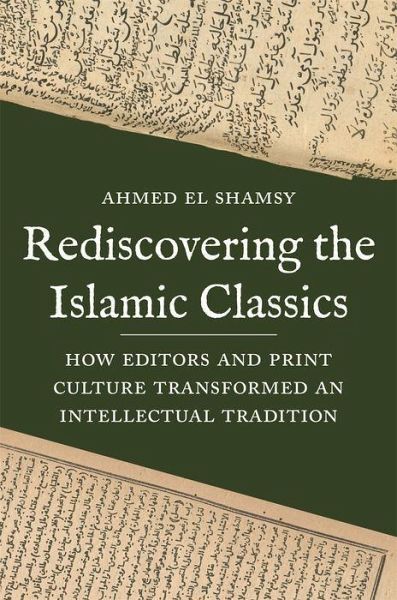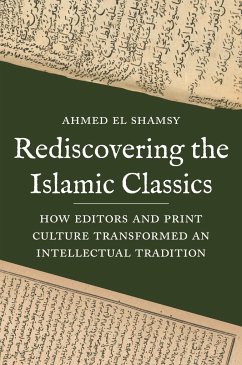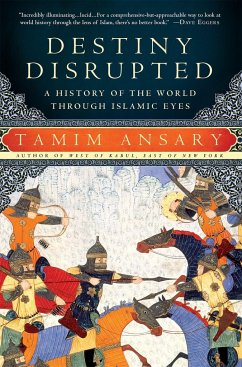Nicht lieferbar

Rediscovering the Islamic Classics
How Editors and Print Culture Transformed an Intellectual Tradition
"Historians have traced the traditions of Islamic scholarship back to late antiquity. Muslim scholars were at work as early as 750 CE/ AD, painstakingly copying their commentaries and legal opinions onto scrolls and codices. This venerable tradition embraced the modern printing press relatively late-movable type was adopted in the Middle East only in the early nineteenth century. Islamic scholars, however, initially kept their distance from the new technology, and it was not until the end of the nineteenth century that the first published editions of works of classical religious scholarship be...
"Historians have traced the traditions of Islamic scholarship back to late antiquity. Muslim scholars were at work as early as 750 CE/ AD, painstakingly copying their commentaries and legal opinions onto scrolls and codices. This venerable tradition embraced the modern printing press relatively late-movable type was adopted in the Middle East only in the early nineteenth century. Islamic scholars, however, initially kept their distance from the new technology, and it was not until the end of the nineteenth century that the first published editions of works of classical religious scholarship began to appear in print. As the culture of print took root, both popular and scholarly understandings of the Islamic tradition shifted. Particular religious works were soon read precisely because they were available in printed, published editions. Other equally erudite works still in scroll and manuscript form, by contrast, languished in the obscurity of manuscript repositories. The people who selected, edited, and published the new print books on and about Islam exerted a huge influence on the resulting literary tradition. These unheralded editors determined, essentially, what came to be understood by the early twentieth century as the classical written "canon" of Islamic thought. Collectively, this relatively small group of editors who brought Islamic literature into print crucially shaped how Muslim intellectuals, the Muslim public, and various Islamist movements understood the Islamic intellectual tradition. In this book Ahmed El Shamsy recounts this sea change, focusing on the Islamic literary culture of Cairo, a hot spot of the infant publishing industry, from the late nineteenth and twentieth centuries. As El Shamsy argues, the aforementioned editors included some of the greatest minds in the Muslim world and shared an ambitious intellectual agenda of revival, reform, and identity formation. This book tells the stories of the most consequential of these editors as well as their relations and intellectual exchanges with the European orientalists who also contributed to the new Islamic print culture"--













